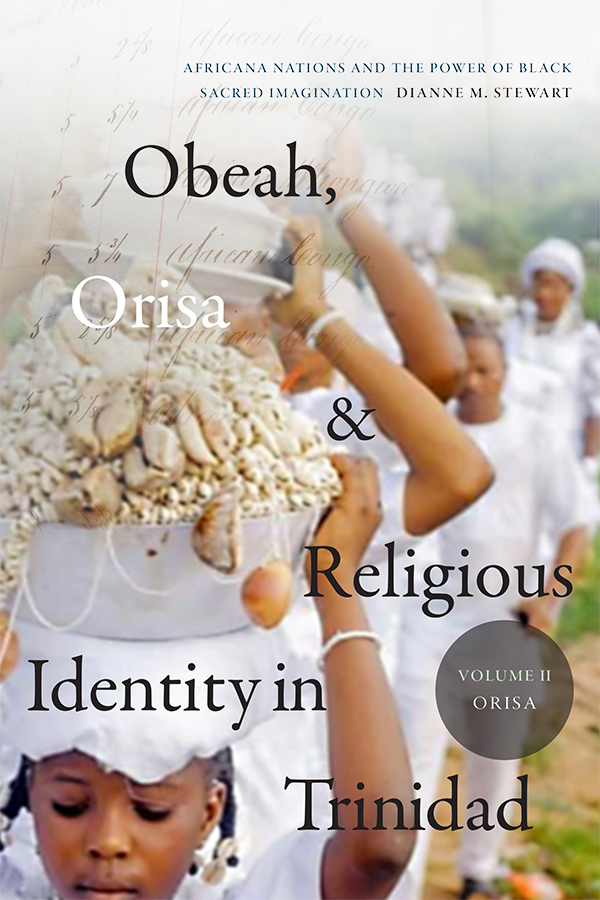Obeah, Orisa, and Religious Identity in Trinidad, Volume II, Orisa: Africana Nations and the Power of Black Sacred Imagination
by Dianne M. Stewart
Dianne Marie Stewart is the Samuel Candler Dobbs Professor of Religion and African American Studies.
Obeah, Orisa, and Religious Identity in Trinidad is an expansive two-volume examination of social imaginaries concerning Obeah and Yoruba-Orisa from colonialism to the present. Analyzing their entangled histories and systems of devotion, Tracey E. Hucks and Dianne M. Stewart articulate how these religions were criminalized during slavery and colonialism yet still demonstrated autonomous modes of expression and self-defense. In Volume II, Orisa, Stewart scrutinizes the West African heritage and religious imagination of Yoruba-Orisa devotees in Trinidad from the mid-nineteenth century to the present and explores their meaning-making traditions in the wake of slavery and colonialism. She investigates the pivotal periods of nineteenth-century liberated African resettlement, the twentieth-century Black Power movement, and subsequent campaigns for the civil right to religious freedom in Trinidad. Disrupting syncretism frameworks, Stewart probes the salience of Africa as a religious symbol and the prominence of Africana nations and religious nationalisms in projects of black belonging and identity formation, including those of Orisa mothers. Contributing to global womanist thought and activism, Yoruba-Orisa spiritual mothers disclose the fullness of the black religious imagination’s affective, hermeneutic, and political capacities.
“Obeah, Orisa, and Religious Identity in Trinidad offers a phenomenal standard for a fresh new roadmap in the study of African religions in the Black Atlantic world. This second of a two-volume series on the consciousness and lifeways of the Yoruba-Orisa community in Trinidad and beyond has established itself as an instant classic and has done so with a vengeance.” Kamari Maxine Clarke, author of Mapping Yorùbá Networks: Power and Agency in the Making of Transnational Communities
“This magisterial volume demonstrates the imperative role religion played in the establishment of political autonomy for Black people. With uncompromising compassion, creativity, and precision, Dianne M. Stewart demonstrates how ‘commodification becomes creation.’ This two-volume foundational work ought to be required reading not only for every student in Africana religions, but also for every scholar in religious studies and Black diaspora studies. A pivotal intellectual expression by an inspiring interdisciplinary mind.” Kathryn Lofton, Yale University

